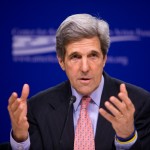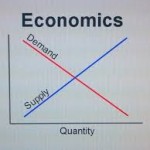Boeing, Yes. Carrier, No.
Posted on December 8, 2016 by Robert Ringer
Politically speaking, the Carrier deal was an attention-getting triumph for the King of Populism, but where his anti-free-trade tactics will ultimately lead is far from certain. International trade and all that goes along with it — tariffs, currency manipulation, job losses and job gains, etc. — is impossibly complicated and to a great extent unpredictable.
The one thing history has taught us, however, is that trade wars, directly or indirectly, have a tendency to lead to shooting wars. This certainly was the case when the United States put Japan in an economic straightjacket with a series of sanctions and embargos that led to the historic attack on Pearl Harbor (an attack that FDR knew about in advance, but did nothing to stop).
That said, I don’t believe that anyone can accurately predict where Donald Trump’s anti-free-market policies will lead, because the long-term results are likely to be very different from those achieved in the short term. What should be very visible in the short term, however, is a big increase in employment, and there’s no question that the employment stats will be a great optic for Trump.
Before I go any further, however, let me make it clear that, all other things being equal, any kind of government interference in the marketplace is anti-freedom and immoral. A privately owned business has a moral right to build manufacturing facilities — or even move its main office — anywhere it chooses.
Thus, in theory, I come down on the side of unconditional free trade. However, what complicates things is when there is little or no reciprocation from one country to another. For example, if far more U.S. companies move out of the country than the number of foreign companies that move in, it’s a sure loser for the United States.
Likewise, if a country charges tariffs on U.S. goods, but can ship products to the United States without having to pay tariffs, the relationship is not really free trade. Thus, to the extent China does not allow goods from the U.S. to cross its borders without restrictions, the U.S. submits to being a sacrificial lamb by allowing the unconditional importation of Chinese products.
Furthermore, and most important, the low-visibility effect of government interference in the marketplace is that it transfers wealth from one group to another. When companies are forced to do their manufacturing in the United States, where the labor-cost differential can be ten times or more greater than in a third-world country, the consumer is, in effect, transferring wealth from his pocket to U.S. workers by paying higher prices for the goods he purchases. In simple terms, then, the higher prices are really nothing more than an invisible tax.
But it’s not quite that simple. If government drastically lowers corporate taxes (not to mention individual taxes) and, even more important, eliminates business-killing regulations, then a company has a chance to make up all or most of its increased labor costs by virtue of operating in the U.S. This is the easiest way to keep companies like Carrier from jumping ship.
(I, for one, have always advocated a zero tax rate for corporations, because I don’t believe in double taxation. And, make no mistake about it, double taxation is what you get when a corporation pays taxes, then its shareholders are taxed again on their dividends.)
Of course, true free-traders believe that a company should be given low tax rates, be freed of most regulations, and still be able to locate its operations to a low-labor-cost country. And, morally speaking, I agree — but it’s not a perfect world.
The short-term consequences of all this could be a bonanza for Donald Trump. It could put millions of people back to work, which in turn would increase economic growth, because those workers would have money to buy goods and services they could not previously afford. In addition, as both John F. Kennedy and Ronald Reagan proved, tax revenues would actually increase as a result not only of more people working, but because they would have more spendable income.
So, taking into account the dynamism of the Trump phenomenon, coupled with the optics of a lower unemployment rate and increased government revenues, it’s likely that people will be quite pleased with Trump’s first-term results.
Now, allow me to throw a monkey wrench into the equation by getting at the heart of the issue that no one is ever willing to even mention: American workers are overpaid! I know it’s heresy to say, but it’s true, and it’s the reason we now find ourselves faced with an insoluble trade situation. If someone in another country is willing, without coercion, to do an American worker’s job at a lower wage, then that worker is, by definition, overpaid.
Believe me, I like to see hard work rewarded and I like to see people happy, so if I could wave a magic wand and make it happen, I would like to see every American worker make as much money as possible. But what makes me feel good does not necessarily coincide with either morality or the economic facts of the marketplace.
As consumers, we all want to pay the lowest possible prices for the things we buy. So when we have to pay higher prices because government forces companies to manufacture their products at home where the price of labor is many times the cost of labor in other countries, it’s simply transferring wealth from consumers to workers.
I would need a very large book to get into all the factors that make trade such a complicated issue, but for now I will mention just one other factor that is important in the real world of perception as opposed to the world of theory: Even though forcing companies to manufacture goods in the United States is an immoral transfer-of-wealth program, and thus anti-freedom, higher employment in the United States has very visible benefits — particularly political benefits.
The political benefits are obvious, but the economic benefits are also real. As just one example, if more U.S. workers are employed, service businesses benefit from an increase in customers and an increase in their willingness to pay higher prices. The greater the number of people who are employed and the higher their wages, the greater the sales that businesses —e.g., restaurants, retail stores, and the entertainment industry — can expect to achieve.
So even though I, like all the economic experts and pundits you watch on television, cannot accurately predict the final outcome of this complex problem, I would advise the King of Populism to tread very carefully when it comes to preventing companies from moving offshore or slapping tariffs on foreign-made goods. As I said, the short-term benefits are very (favorably) visible, but long term it could be a disaster for America.
Trump’s time would be much better spent if he went after government contractors (as he did with Boeing) and used his negotiating skills to put an end to the gravy train of inflated, over-budget costs. Cutting government waste, fraud, and abuse has long been something of a bad joke in politics, because no politician has ever had the guts to take on the heavy hitters who have a vested interest in waste, fraud, and abuse.
And guess what? Donald Trump is the first president in my lifetime who doesn’t need to worry about that problem, because he doesn’t owe anything to the heavy hitters (I hope). So, in an imperfect world, I believe more Boeing-type solutions would yield greater economic benefits for U.S. businesses and consumers than Carrier-type smack downs.
That said, since it’s impossible to get everything you want in a world where governments have a monopoly on the use of force, if Trump dramatically cuts stifling regulations on companies and reduces corporate taxes to 15 percent, it might just prove to be a tolerable tradeoff for his anti-free-trade policies and he won’t have to use strong-arm tactics to keep companies and jobs in the United States.
Fingers crossed that DT will listen closely to the free traders he’s assembling in his camp.










